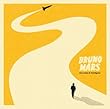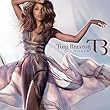 Dale Peterson takes the unusual angle of examining how evolution has shaped animal behavior in the area of cooperation. He uses research in cell biology to talk about the limbic brain, emotional responses to things like tickling, fear, grief and love
Dale Peterson takes the unusual angle of examining how evolution has shaped animal behavior in the area of cooperation. He uses research in cell biology to talk about the limbic brain, emotional responses to things like tickling, fear, grief and love
A review of Five Bells by Gail Jones
 This is a novel that, like Slessor’s poem, explores time, and the way in which it flows between and across character. When Ellie, James, and their pivotal teacher Miss Morrison learn about the Clepsydra – the Chinese clock that consists of vessels that leak time, Ellie and James are excited. Time is a process “of emptying and filling, a fluent time-passing, not one chopped into pieces.”
This is a novel that, like Slessor’s poem, explores time, and the way in which it flows between and across character. When Ellie, James, and their pivotal teacher Miss Morrison learn about the Clepsydra – the Chinese clock that consists of vessels that leak time, Ellie and James are excited. Time is a process “of emptying and filling, a fluent time-passing, not one chopped into pieces.”
The Different Languages of Moroccan Jazz: Malika Zarra’s Berber Taxi
By Daniel Garrett Malika Zarra, Berber Taxi Produced by Malika Zarra and Francis Jacob Motema Music, 2011 The Moroccan singer-songwriter Malika Zarra has a great voice, and is a confident performer; able to perform the magic of very different conjurers,…
The Boy Wonder as Musician: Bruno Mars and his album Doo-Wops & Hooligans
 Bruno Mars creates an imaginative space in which emotion and romance are allowed to roam freely; and self-aware, he also tries to puncture that idealism, to go beyond it. In “Runaway Baby,” a song possibly inspired by the rapid rhythm of 1960s rock and latter day Gnarls Barkley, the narrator warns women about his voracious appetite and theirs: “There’s only one carrot and they all gotta share it” and “I’m not trying to hurt you, I just want to work you,” Bruno Mars sings.
Bruno Mars creates an imaginative space in which emotion and romance are allowed to roam freely; and self-aware, he also tries to puncture that idealism, to go beyond it. In “Runaway Baby,” a song possibly inspired by the rapid rhythm of 1960s rock and latter day Gnarls Barkley, the narrator warns women about his voracious appetite and theirs: “There’s only one carrot and they all gotta share it” and “I’m not trying to hurt you, I just want to work you,” Bruno Mars sings.
A Golden Girl Returns: Toni Braxton’s Pulse
 Toni Braxton’s sound—not simply of emotion, but of authority and maturity—is center stage in the ballad “Woman,” about the status of a woman in a relationship. “I need to be touched, I need to be loved” and “I’m not your friend, who only needs you sometimes,” Braxton sings. (The fat beat in the song calls to mind that in certain songs of two different performers, Michael Jackson and Luther Vandross.) Braxton is great with ballads.
Toni Braxton’s sound—not simply of emotion, but of authority and maturity—is center stage in the ballad “Woman,” about the status of a woman in a relationship. “I need to be touched, I need to be loved” and “I’m not your friend, who only needs you sometimes,” Braxton sings. (The fat beat in the song calls to mind that in certain songs of two different performers, Michael Jackson and Luther Vandross.) Braxton is great with ballads.
A Male Jazz Singer, A Mindful Man of Elements: Gregory Porter and his album Water
Gregory Porter’s album Water does not do only one thing; consequently, Porter cannot be made into a negative example. In Hoagy Carmichael and Johnny Mercer’s “Skylark,” romantic expression is balanced by dignity and restraint; and although the song—inescapably—has much of its customary wistfulness, it seems more rooted, tempered by the real, and the repeated question at the end is one of both doubt and hope. The fast horns, percussion, and singing voice of “Black Nile,” a composition by Wayne Shorter, gives way to scatting.
A True King’s Playthings: Bo Diddley’s Beach Party
 In the song, Bo Diddley sings “Baby, you know I love you so, I’ll never let you go,” the kind of recurring and rudimentary declaration of young love that reassures, even as its exuberance promises a certain single-minded trouble. With its thick grooves and hammering rhythm, the music can be heard as rhythm-and-blues with a rock edge, or rock with rhythm-and-blues roots; and that makes it very American. (The song begins as something you can dance to, but its rhythm becomes so dense it is nearly industrial; a prophetic development.) Of course, Bo Diddley is one of the men—with Chuck Berry, Fats Domino, Little Richard, and Ike Turner—who laid the foundation for rock and roll.
In the song, Bo Diddley sings “Baby, you know I love you so, I’ll never let you go,” the kind of recurring and rudimentary declaration of young love that reassures, even as its exuberance promises a certain single-minded trouble. With its thick grooves and hammering rhythm, the music can be heard as rhythm-and-blues with a rock edge, or rock with rhythm-and-blues roots; and that makes it very American. (The song begins as something you can dance to, but its rhythm becomes so dense it is nearly industrial; a prophetic development.) Of course, Bo Diddley is one of the men—with Chuck Berry, Fats Domino, Little Richard, and Ike Turner—who laid the foundation for rock and roll.
For Love and Justice, in the American Grain: the album Voice of My Beautiful Country by singer Rene Marie
 Flack’s interpretation has great power within restraint; and Rene Marie pursues great animation, believable impersonation. Rene Marie’s selection of patriotic songs—“America the Beautiful,” “My Country ’Tis of Thee,” and “The Star-Spangled Banner”—is shrewdly ambitious, admirably epic. Rene Marie’s album, Voice of My Beautiful Country, is, as intended, a major work.
Flack’s interpretation has great power within restraint; and Rene Marie pursues great animation, believable impersonation. Rene Marie’s selection of patriotic songs—“America the Beautiful,” “My Country ’Tis of Thee,” and “The Star-Spangled Banner”—is shrewdly ambitious, admirably epic. Rene Marie’s album, Voice of My Beautiful Country, is, as intended, a major work.
With A Little Help: Grizzly Bear, Friend
 Is this the music of solitude, contemplative or narcotic solitude? Or of youthful though alienated community? Grizzly Bear’s interpretation of the Gerry Goffin-Carole King song “He Hit Me” is delivered like the cross between a choir song and a sensitive male ballad; and the song, usually sung by a woman, in which violence is the mistaken mark of love (“he hit me and it felt like a kiss”), has an irony that may be sublime.
Is this the music of solitude, contemplative or narcotic solitude? Or of youthful though alienated community? Grizzly Bear’s interpretation of the Gerry Goffin-Carole King song “He Hit Me” is delivered like the cross between a choir song and a sensitive male ballad; and the song, usually sung by a woman, in which violence is the mistaken mark of love (“he hit me and it felt like a kiss”), has an irony that may be sublime.
A review of According to Luke by Rosanne Dingli
 It isn’t just the natural world that is richly described, but also the iconic places that the characters visit, from the Saydnaya convent in Damascus to the Rabat Priory in Malta, along with the many paintings and sculptures, all described with the kind of meticulous detail that helps the reader sympathise with the love that Jana has for the places and work.
It isn’t just the natural world that is richly described, but also the iconic places that the characters visit, from the Saydnaya convent in Damascus to the Rabat Priory in Malta, along with the many paintings and sculptures, all described with the kind of meticulous detail that helps the reader sympathise with the love that Jana has for the places and work.